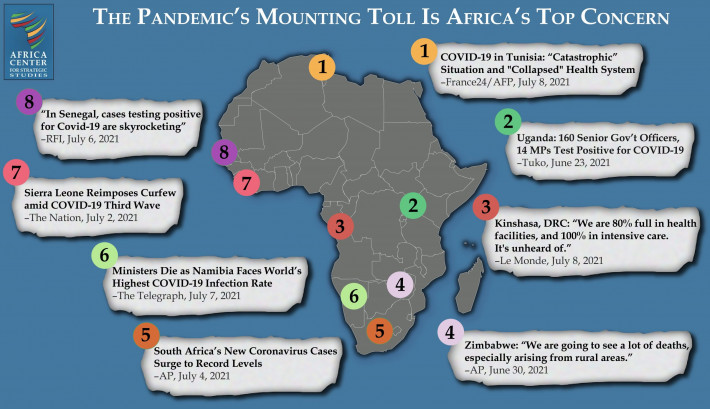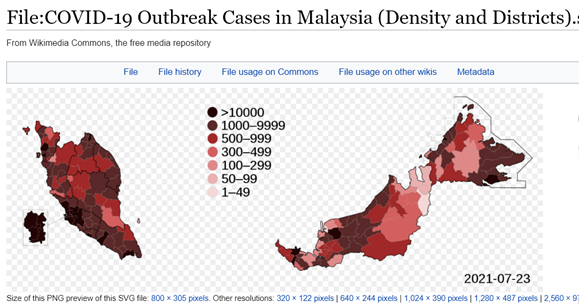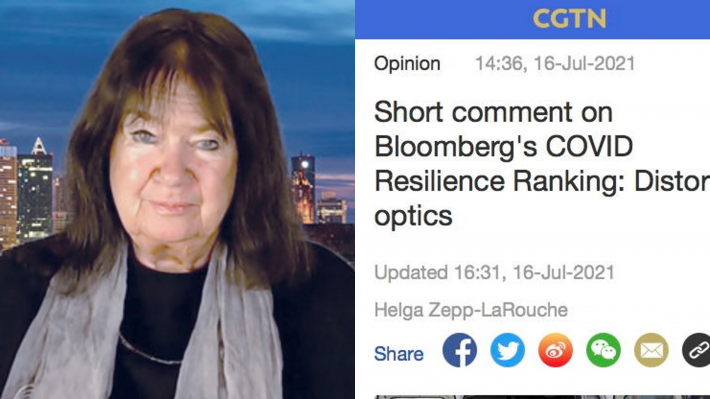July 31 (EIRNS)–World Food Program Executive Director David Beasley made a strong intervention this past week in the July 26-28 Rome World Food Systems Pre-summit, by focusing on ending hunger, instead of greening food production, and serving “nature” apart from human beings. The UN WFP July 26 press release reported:
“Speaking at the opening of the UN Food Systems Pre-Summit in Rome on 26 July, the World Food Programme (WFP)’s Executive Director, David Beasley, called for action to reach zero hunger.
“While the world has the expertise and the resources to end hunger, efforts and attention are being directed somewhere else. ‘While we are rushing to space, 41 million people are knocking on famine’s door,’ he said.
“Calling out billionaires, Beasley said that ending hunger by 2030 would cost US$40 billion per year. ‘That seems like a lot of money. But in the United States alone, in the last one year, the U.S. billionaires’ net worth increase was over 1 trillion,’ he added.
“’There’s over U.S.$400 trillion on planet earth today. It is a shame that we have one single child going to bed hungry – let alone dying of hunger at a rate of one every five, six seconds.’”
Kurchatov Institute To Create a Joint Russia-Belarus Scientific Research Center–
July 28 (EIRNS)—The president of the Kurchatov Institute Scientific Research Center Mikhail Kovalchuk announced yesterday that his Institute and Belarus’s National Academy of Sciences had signed a roadmap to jointly establish “powerful projects related to new research infrastructure based on powerful installations—mega-sciences—[that] are now unfolding in front of us.”
Kovalchuk stated: “The program has also been launched in Russia and it is expected to become the world’s most accomplished research infrastructure in 5-7 years…. Importantly, both Belarus and Russia have the required tools. If we create this single infrastructural research space, we will become leaders in drawing other [Commonwealth of Independent States] CIS partners into this effort.”
He further said that “We have also proposed that a branch of the Kurchatov Institute be set up on the premises of the National Academy of Sciences of Belarus to strengthen integration and cooperation. Also, we proposed that a branch of the Moscow Engineering and Physics Institute be opened in Belarus in the field of new education.”
The TASS wire reporting on this announcement characterized the Kurchatov Institute National Research Center as “one of the leading research facilities in Russia and in the world. With its creation, Russia has set up a unique inter-disciplinary scientific and technical compound that comprises the Kurchatov specialized synchrotron radiation source (KISI-Kurchatov), the U-70 accelerator, the IR-8 and VVR-M neutron research reactors, the PIK high-flux research reactor, the T-10 and T-15 tokamak thermonuclear installations, plasma and other units.”
South Korea Plans for Producing Up to 1 Billion Vaccines in 2022—
July 28 (EIRNS)—While it remains to be seen how the U.S. will follow through on their commitment to assist India in ramping up COVID-19 vaccine production, the U.S.-Korea plans are moving forward. In India’s case, the U.S. has a bumpy history of blocking critical raw materials for India’s world-leading vaccine production operations, and then turning down repeated requests for vaccines when India was in the greatest need. And today, Antony Blinken offered a paltry, even insulting, $25 million for India’s vaccination program. No vaccines included.
On May 23, when South Korea’s President Moon Jae-in came to the White House, agreement was made on a Global Vaccine Partnership (GVP), first with a “KORUS GVP Experts Group” of scientists, public officials and various experts. Seoul had actually wanted immediate vaccines from the U.S. in exchange for future vaccines to be provided from Seoul to the U.S.—but that was refused. Instead, four deals were initiated, beginning with Samsung Biologics arrangement to produce “hundreds of millions” of Moderna vaccines, as soon as technology transfer and trial production were completed. South Korea would be putting up the money for purchasing the vaccines produced. Moderna also signed an MOU with the Ministry of Trade, Industry and Energy, and also the Ministry of Health and Welfare, for Moderna to invest in production facilities in Korea using a Korean workforce, with Korean government support for Moderna. Another MOU was signed by both the Health Ministry and SK Bioscience with the U.S.’s Novavax for vaccine development and production.
The update this month, from “a senior South Korean government official” is that Seoul is in talks with Pfizer and Moderna on expanding production up to 1 billion doses in 2022. (This is on top of deals with AstraZeneca and Novavax.) Health Ministry official Lee Kang-ho commented: “We have had frequent discussions with large pharmaceutical companies to produce mRNA vaccines. South Korea is keen to help by offering its facilities and skilled human resources.” The speculation is that Hanmi Pharmaceuticals and Quratis might be ready to start up production immediately. Hanmi said it has a large capacity reserved to produce Sanofi’s diabetes drug, but that is at a temporary standstill, and the capacity can meanwhile be used to produce COVID vaccines. And Quratis has a one-year-old factory which makes a tuberculosis vaccine, and they say they have capacity for mRNA vaccines. It appears that the technology, workforce and capital is all present, waiting to move forward.
July 27, 2021 (EIRNS)—On July 9 the Africa Center for Strategic Studies warned, “The surge of the Delta coronavirus variant in Africa is set to cause hundreds of thousands of deaths in the coming months, absent a dramatic scaling up of prevention measures and COVID vaccine access.” Now just 18 days later, the North, South, and East of Africa have exploded with new COVID cases. The latest infographic from the Africa Center dated July 12, shows total known confirmed cases of COVID in Africa at 5,984,845 since the beginning of the pandemic. View the time-lapsed map here.
At the time of the July 9 Africa Center report “26 African countries [had] seen their confirmed COVID-19 case[s] jump by approximately 50%” in June compared to May. Then, in the first week of July, 5,600 people across Africa died from COVID, a 43% increase from the week before. Overall, the Center noted, “There has been a near tripling in the number of COVID cases and 30,000 fatalities on the continent since the end of April when the Delta variant emerged in Uganda.” By mid-July the Delta variant was found in 22 of 54 African countries, countries with inadequate healthcare platforms and access to vaccines—criminally, a mere one percent of Africans have been vaccinated.
A change-in-fatalities table, by the Africa CDC, compared death-rate increases May 8-June 7 to June 7-July 7, showing that 16 African countries had a 450% to 4,303% rise in COVID deaths, while six African countries had a 100% to 397% rise in COVID deaths. The table is here.
Now, July 27, an International Rescue Committee press release reads, “From Asia to Africa to Latin America, countries are suffering from record COVID-19 caseloads and deaths, … The Delta variant is leading to a spike in cases in crisis-affected countries. In the month to July 25th, there has been a significant increase in cases in Zimbabwe (116%), Thailand (110%), Myanmar (78%), Liberia (60%), Bangladesh (33%) and Afghanistan (29%), and concerning test positivity rates in Mexico (37%), Iraq (22%), Colombia (22%), Zimbabwe (20%) and Democratic Republic of Congo (17%).”
Echoing Helga Zepp-LaRouche’s call for new healthcare platforms in every country, and Dr. Joycelyn Elders’ insistence that public health measures are urgently needed, the Africa CDC July 9 report concluded that need is clear to “ramp up vaccine access to avert a humanitarian calamity” and, since “Africa does not have the hospital infrastructure to rely on …. Prevention, relying on public health principles, remains the indispensable priority.”
July 24 (EIRNS)–David Beasley, Executive Director of the World Food Program, tweeted on July 20, on the day billionaire Jeff Bezos took a ride into space and back:
“To @JeffBezos, @blueorigin, tremendous congratulations today! I can only imagine how incredible it was to see OUR planet from above. We’re all ONE human race. The sky is no longer the limit!! Now, let’s go end hunger together! Earth needs you!!
…you have proven over and over that anything is possible when you set your heart and mind to it. As you saw from space, Earth is a special place. 41 million people are on the brink of famine. I need your help. We need your help. Together, I know we can! #SpaceForBoth”
July 22, 2021 (EIRNS)–Indonesia now has the world’s highest COVID-19 infection rate and death rate, while other Southeast Asian countries are also facing a dangerous spike and a lack of adequate medical capacity.
* INDONESIA surpassed India’s peak per-capita death rate at 4.17 per million, compared to India’s peak of 3.04. Wednesday saw the highest death toll thus far at 1,383, while reported new cases exceed 50,000 per day (but with little testing, the actual number is thought to be much higher). The government ordered the conversion of oxygen production to be 90% for medical purposes from 20% normally. About 14% of the population has had at least one vaccine dose, primarily China’s Sinovac.
* MALAYSIAN hospitals are terribly overcrowded. AP reports that the national lockdown measures, which have badly damaged the economy, have not stemmed the infection rate of more than 10,000 daily. About 15% of the population is fully vaccinated, and the government hopes to have a majority vaccinated by the end of the year. The death rate per million is close to that of Indonesia, at 4.02.
* MYANMAR is still in a state of social chaos since the coup in February and the mass demonstrations — and mass killing of demonstrators by the junta. Now the pandemic is sweeping the country with few reliable statistics. The ASEAN Parliamentarians for Human RIghts (an organization opposing the junta) reports in a statement: “With little testing capacity, low numbers in the country vaccinated, widespread shortages of oxygen and other medical supplies, and an already beleaguered health care system under increasing strain, the situation is expected to get increasingly worse in the coming weeks and months.” It is believed that only 3% of the population has been vaccinated. The head of the department that oversees the cemeteries told military-run Myawaddy TV news on Monday that 350 staff members had been working three shifts since July 8 to ensure proper cremations and burials of people at Yangon’s seven major cemeteries, adding that they had cremated and buried more than 1,200 people on Sunday alone, including 1,065 who had died at home of COVID-19 and 169 who had died in hospitals.
AP reports that Cambodia and Thailand have also seen strong increases in both coronavirus cases and deaths, but have thus far held the seven-day rate per million people to a lower 1.29 and 1.74, respectively.
July 16 (EIRNS)—A commentary from Helga Zepp-LaRouche, responding to “COVID Resilience Rankings” determined by Bloomberg, was published by CGTN today. Zepp-LaRouche lambasts the Bloomberg report, which gave the U.S. higher marks than China, in which she states, “Essentially this ranking is a demonstration of the thesis, that one can prove anything with statistics, as long as you define how the statistics are constructed. While most of the nominal facts of the listed rankings appear to be factual, the accompanying article in the section ‘Containment Formula’ belies the overall purpose and bias hidden behind the statistics. Here the worry is expressed, that the ‘underperformance of some of the world’s most prominent democracies’ as compared with ‘authoritarian countries like China’ has raised questions about the ability of democratic societies to cope with pandemics.”
Zepp-LaRouche continues: “The reality shows a quite different story. In Wuhan, China, it demonstrated that the prioritization of society’s well-being over individual liberty was very successful. The Chinese approach after the containment in Hubei Province to test, isolate, quarantine, continues to spot cases to the present day and has resulted in only 4,636 deaths to date. In the U.S., on the other hand, more than 600,000 people lost their lives with many people suffering from long-term COVID debilitating effects.” The full opinion article is here.
July 14 (EIRNS) – Speaking to the U.N.’s High-level Political Forum on Sustainable Development, Secretary General Antonio Guterres stated succinctly: “Pledges of doses and funds are welcome — but they are not enough. We need at least 11 billion doses to vaccinate 70 percent of the world and end this pandemic… Everyone, everywhere, must have access to COVID-19 vaccines, tests, treatments and support,” he said.
“The world needs a Global Vaccination Plan to at least double the production of vaccines, ensure equitable distribution through COVAX, coordinate implementation and financing, and support national immunization programs,” Guterres added. “To realize this plan, I have been calling for an Emergency Task Force that brings together the countries that produce and can produce vaccines, the World Health Organization, the ACT-Accelerator partners and international financial institutions, able to deal with the relevant pharmaceutical companies and manufacturers, and other key stakeholders,” he said.
Indonesia Surges Past India in New COVID Cases Per Day —
July 14 (EIRNS)–Indonesia hit a record 54,000 official new COVID-19 cases on Wednesday, about a twelvefold increase over the last seven weeks. Covid deaths follow new cases by two weeks, going from 200/day to over 1,000/day over the last five weeks. India, with five times bigger population, has dropped below 40,000/day. Indonesia, a country of 270 million souls, has only vaccinated about 15.6 million people, with another 31 million having received their first dose over the last several weeks. They’ve now acquired a total of 108.5 million doses of China’s Sinovac vaccine and recently another 25 million doses of AstraZeneca. The United States chimed in with 3 million doses of Moderna on July 9, both too little and rather late — even though President Biden’s commitment to get a total of 4 million doses to Indonesia represents one of his largest actions. The total projected doses amount to potential coverage of 69 million people, or about a quarter of the population, and they are presently administering about three-quarters of a million jabs/day. The Health Minister Budi Gunadi Sadikin reports that more than 90,000 of 120,000 available hospital beds are taken up with Covid patients, while certain provinces are reaching 100% capacity.
July 13 (EIRNS)—Helga Zepp-LaRouche gave the following interview to China Plus radio’s World Today broadcast today. China Plus is the official English website of China Radio International. The interview is the second news story starting at 12:55 minutes
CRI: Welcome back. The United Nations Human Rights Council has passed China’s resolution on the contribution of development to the enjoyment of all human rights, at the 47th session, which emphasizes the right to development and that the aim of development is to improve the developing of the people. For more, we are now joined on the line by Helga Zepp-LaRouche, founder of the Schiller Institute, a Germany based economic and political think tank. Thanks for joining us Dr. LaRouche.
HELGA ZEPP-LAROUCHE: Yes, hello! How are you?
CRI: I’m good, thank you. So, the resolution stresses that development and the realization of human rights and fundamental freedoms are interdependent and mutually reinforcing. How do we understand those?
ZEPP-LAROUCHE: First of all, let me express my congratulation. I think this is an excellent development, because hopefully this will inspire a very productive discussion everywhere around the world, what is the right definition of human rights. And I think the interdependence between development and human rights and freedom, you can see best if you look at the lack of development. Because then you have poverty, and you have still on the planet, 2 billion people who have no access to clean water, more than 800 million are and you have no freedom if you have all day to try to get a little bit of water and a little bit to eat, just to try to stay alive, so you have no freedom under these conditions. So therefore, I think development is very clearly the precondition for both human rights with freedom.
CRI: Yes, but that is very different from the Western explanation for human rights, which all starts with the ballot box and has everything to do with individual freedom. How did it get the different priorities when it comes to the human rights issue?
ZEPP-LAROUCHE: Well first of all, I think one has to see that the label isn’t always consistent with the content. Many things which have the label “democracy” and “human rights” have quite some different content, and in the case of the Western parliamentarian system, or unfortunately even the presidential system in some countries, is more a plutocracy, where the money of the multinationals and the big banks determine who gets a seat. Also, I think if you look at the overemphasis of individual freedom it has degenerated into a notion, everything is allowed, and the common good is regarded as a suppression of these individual freedoms.
Now, if you have a crisis, like in the case of COVID-19, you can see what the consequences of this is. China and some other Asian nations took strict measures for the common good, and it worked well, and then also the individuals profited because they were rid of the pandemic earlier; while in the West you had a back and forth, people were even protesting against having to wear masks, regarding that as an intrusion in their personal freedom, and they had to pay a much, much bigger price.
CRI: Well, representatives from countries including Venezuela, Cuba, and Pakistan also made speeches to appreciate China for delivering those draft resolutions and stressed that development should be the focus of every country, especially developing countries. But why is the resolution getting support from these countries?
ZEPP-LAROUCHE: Well, it’s very simple: Because in the entire post-World War II period, the IMF conditionalities prevented real development in the developing sector. They were told, you have to pay your debt first before you can invest in infrastructure or health, and the result was a blatant underdevelopment and incredible poverty. So, China, even before the Belt and Road, invested in railways in Africa and other infrastructure, but especially with the Belt and Road Initiative and the COVID crisis, it became very clear that these countries regarded the help from China—which was denounced as “vaccine diplomacy” by some Western media—but these developing countries regarded the attitude of China as a life-saver for them. So, it’s no surprise that they would support it.
CRI: And I think you earlier mentioned about what should be the right definition of human rights. And another question is who gets to pick what the most basic human rights should be? And have you got a feeling that this has been heavily guided by a small number of mostly Western nations which has led to a general bias in favor of the civil, political liberties over economic, social, and cultural rights?
ZEPP-LAROUCHE: Yes. You can see that right now very clearly in the case of the so-called “identity policy.” For example, between the EU Commission and countries such as Hungary, Poland, Slovenia, there is a big tension right now, whereas in the East, they have rejected the effort by the EU Commission to impose the values of the Western liberal European countries.
So, I think what needs to be put up front again, is the Five Principles of peaceful coexistence and the idea of non-interference in the different social systems, because they are, due to customs, traditions, cultural heritage and these must be respected.
CRI: In 2019 a study by the Center for New American Security—that is a Washington-based think tank—says that China’s actions in the UN were part of this effort to redefine how such institutions are run and shift away from Western concepts of democracy and human rights. What is your thought on those?
ZEPP-LAROUCHE: Well, China has been the leading nation for centuries, and only in the 18th and 19th centuries, because of the colonialist attacks and Opium Wars by the British, you know, that that was diminished. But now, China is again the second largest economy in the world. The lifting of poverty of 850 million people represents a tremendous civilizational contribution, and therefore, I think, it is absolutely correct that China should have a major role in this discussion.
CRI: OK, but do you feel the widespread back and forth surrounding human rights issues around the world currently has been highly politicized? And sometimes it has even been used as a tool for political purposes and sometimes as an excuse to put pressure on other countries or even invade other countries?
ZEPP-LAROUCHE: Yes. These notions, human rights and democracy, have become like a two by four: You can smash any argument into the ground. So, I think this double standard needs to be corrected. Those people in the West who support sanctions under conditions of the COVID-19 crisis against such countries as Syria, Yemen, Iran, Venezuela—I think altogether 30 countries—I mean, this is a violation of human rights if you ever have seen one. Or, if you look at how Assange is treated, or what happened to Snowden, all these people just did the right thing, and they have been treated in an absolutely horrible way. So, this double standard should be stopped.
CRI: What are the consequences of such double standards or politicizing such human rights issues? Is it like shifting our focus away from the real human rights problems?
ZEPP-LAROUCHE: Yes, it poisons the atmosphere, and it degenerates the idea of human rights, which is actually a beautiful idea, and makes it a victim to geopolitical reasons.
Now, the Schiller Institute is upholding this concept of the “New Name for Peace Is Development.” This comes originally from Pope Paul VI in 1967 in his Encyclical Populorum Progressio, where he coined that idea that the “new name for peace is development.”
And this is very important right now, concretely in Afghanistan. Look, for example, NATO spent there 20 years for absolutely nothing, and now the question is what’s to come out of Afghanistan? Will you continue the geopolitical war? Or, will you have an agreement among all neighbors, like Russia, China, India, Pakistan, Iran, and have real development? The real development would mean to extend the New Silk Road, the Belt and Road Initiative into Afghanistan, but also into Iraq, Syria, Yemen, the whole region. And then you can have peace. So this is not an abstract academic notion, this is an extremely actual issue, that the idea that real peace does require development, that that is a precondition without which nothing will function.
CRI: OK, thank you Dr. Helga Zepp-LaRouche, founder of the Schiller Institute, a Germany-based political and economic think tank.

















